We had a video call with the three pastors whose books were featured in this symposium on the rural church. Our conversation highlighted themes that arose in the series, things like: misconceptions of rural society, the nature of abiding, success in ministry, and the gifts that the rural church can offer to the wider church. We are grateful to Glenn, Brad, and Stephen, for all the time and work they put into this series. We hope you enjoy an edited transcript of our conversation, and the symposium as a whole.
Geoffrey Fulkerson: Well, thank you guys for joining us this morning. Thank you also for participating in this symposium—we’re really, really happy to be able to spotlight the rural church here in this series. I should also say congratulations on the book awards that you received, well earned.
I’d like to start by thinking about rural society, broadly, and the church within it. How would you talk about rural society? What would you want people to understand? Where do you think it’s misrepresented? Maybe you could also tell us a little bit about the places you pastor in.
Stephen Witmer: I’d love to hear what Brad and Glenn would say. I do think it’s an interesting time to be releasing this series, maybe quite a good time because the election again has highlighted this stark urban-rural divide. You could say 2016 highlighted a lot of things. It’s interesting that all three of our books have been published since 2016. Probably not a coincidence, and now 2020 has put an underline and boldface on what we saw in 2016. There is interest in this as evidenced by, I mean, it’s quite significant that JD Vance’s memoir has become a really significant film now. There’s broader cultural interest. I think that would be a way of saying this is a discussion that we hope will be useful for those within small towns, rural churches, but also it has a broader cultural significance. As people are asking more broadly, what are these rural places like?
Glenn Daman: What is rural society and what do people need to know? I think there’s a lot of, first of all, ignorance about rural society, especially from an urban standpoint. I think the narrative has been framed that rural society is bigoted. I think there’s some ignorance, some misconceptions.
On the other hand, there’s this idyllic view of rural society that sees it as this Norman Rockwell perspective of rural America that doesn’t fit with reality either. Rural America is facing a significant crisis. I mean, they’re calling it the new ghetto. I think it’s going to have to change how we think, even about the church and how the church functions. You’ve got this competing false perception of rural America today.
Brad Roth: I think I would emphasize diversity of rural. There’s a lot of diversity here too. There’s growth happening in some rural communities, especially if you’re on an interstate within a shadow of a city, and people are getting out. I’m positive that’s the experience that you could see in greater Boston. Even here, people are getting out of Wichita, at least we’re doing school in person and you can come up here and get down to Wichita whenever you need to. I think this would be the same across the Great Plains where you have rural communities that are within shot of cities and their experience has been largely positive.
But then you’ve got also rural communities that are up along the border with Nebraska that are not within two hours of a major city. Those are communities that have all of the things that we learned about Hillbilly Elegy, where you have the economic challenges and you don’t have the rural hospitals and you don’t have the access to education. So in our community, I don’t think there’s the desperation that you have in someplace like Jewell County, Kansas, that lost half of its population between 1970 and 2000. You don’t have that sense that things are falling apart at the seams.
Stephen: Yes, my town Pepperell is 12,000 people, an hour Northwest of Boston. I would characterize it as a small town not just in terms of hard demographic numbers but in terms of vibe and feel. In New England, small towns are discrete. They’re separated. Usually, you drive from place to place and you drive through woods to get from one place to another. I talk to people and ask how they arrived in Pepperell. Probably nine times out of ten someone will say “I started in Boston and I drove until I could afford it.” If you go further West or North from us, it gets even cheaper. We’re probably by some measures on the larger side of small-town, but in the broader sweep of communities we’re pretty small.
Matt Wiley: Stephen, do you think that your community might be more educated than some typical rural or small-town communities given its proximity to Boston?
Stephen: Yes that’s interesting because our congregation, in particular, has quite a blend. It’s one of the things I like about our congregation. We are commutable into Boston. It’s kind of the outward edge. There are a few people who have commuted down into Cambridge and live in Pepperell to work. But we also have quite a few townies, local people, people in the trades. That’s representative of the town itself. There’s kind of a core of long-term Pepperell folks who would not be oriented toward the city and then there are newer people who have been moving up from the city and that creates various tensions about what is the community, what should the future of the community be? How should we be preserving the reality? I’ve been on the master planning committee of our town the last couple of years. There’s a lot of talk about preserving the rural feel of Pepperell.
Glenn: I think that hits upon really one of the big issues in dealing with rural areas—how do you define it? Most definitions, if you start with government definitions, they define Metro and micropolitan, and then just whatever’s left is rural. Part of the challenge of defining rural is there is no definition of rural that’s consistent out there. Part of that is due to the diversity. I looked at where Stephen is at and that’s vastly different from where I grew up in Northern Idaho on an Indian reservation where the nearest town is 100 people. You’ve got this vast diversity in rural areas and how do you define it?
Matt: Stephen, you said you’re part of the master planning committee for your town. That reminds me of something Brad wrote about in his book, how one of the advantages of being a pastor in a rural community is the influence you can have over the community in general because you get placed on school boards and such. Has that been your experience in terms of the opportunities you have as a pastor in a rural community?
Stephen: Yes, it has for me. Not just personally but also people I know as I’ve connected with other rural pastors, small-town pastors. Just that kind of idea of inordinate influence. There’s a guy who’s pastoring at Dexter, Maine—I think it’s a community of maybe a couple of thousand people or so. I’m not sure but it’s very small. If you drive through it, you blink and you’re through it. He’s a young guy with a lot of energy and he’s just had an enormous influence on the town.
Brad: Yes, I think that’s one of the most fruitful avenues into rural ministry, to just become connected and part of the fabric of the community. It builds credibility for rural leaders in the church because the question is always hanging out there. It’s like, “Are you one of us?”
Matt: This brings out what I sense is a pretty strong theme in the series: abiding. Could you talk a little more about that and maybe walk us through how you all have navigated how to discern when to stay at a particular church or when it might be time to move on?
Brad: I find that whole thread fascinating. I think there’s some challenges there and part of it is I don’t think we can trust our own hearts on it because there are just so many ways that we are not habituated to stay. We are habituated to move and there’s going to be the other challenges that if you do rural ministry halfway well, and if you write a book on it, people are going to seek you out to be their pastor in other places. How do you then know what to do with that? When is it a legitimate calling and when is it your itchy feet? I think we have to lean in the direction of staying put.
Glenn: Well, I’ve been at where we’re at now for 30 years so I haven’t really moved. Part of it is we have to get away from the success syndrome that ministry is about climbing the successful ladder and moving upward. Where we’re at now, we were there for seven years and Brad, I agree with you—I don’t think ministry starts until about seven years in. For me it’s when I bought property. When we bought our property, one lady came up to me and she goes, “Well, I guess you’re going to stay.” That was after seven years so it takes that long to get credibility and trust because they’ve been taught not to trust pastors to stay long.
Stephen: What’s the experience of rural communities? Somewhere in my book I refer to a “landscape of loss,” and I think I took the phrase from someone else. There is a sense of people moving away, businesses shutting their doors, etc. That’s certainly the kind of rural that I grew up in, the poorest county in Maine. Every time we drove back home during college, the Main Street would look worse, and there would be fewer people. Then the elementary school shut down and, I don’t know, it just becomes part of the psyche of the town. Just the struggle, the underdog status, and who’s going to move away next? Then to try to do ministry from that context is very, very difficult. In fact, the church I grew up in, they can no longer support a part-time pastor so just in the last several months they’re needing to make some very tough decisions about what the future of our church looks like. I think it is a big reality in many, many rural places.
Brad: There is that psyche of loss and the landscape of loss in a lot of rural communities. It is an act of love with intentionality, to stay put and be with the people through thick and thin over the long term. On top of that, I think it’s an identity question: “What does it mean to belong to a place?”
Pastors have a niche that they’re slotted into. In one way they belong and in another way they can take a long time to gain that credibility and really belong to a place. Definitely buying a home, or having kids in school gives you a hook into the community so that people take you seriously. But even then, it’s like, is your family name one of the names on the street signs? There’s always a kind of exclusivity in that sense, in rural areas that I sense is not true in suburbs or even urban areas, which are defined more by that churn and movement of people.
Glenn: I think it goes to our definition of success in ministry. How do we define success? I’m 61, when I look back and say, “How do I define whether my ministry has been successful or not?” How are we influencing the people that we’re serving?
Stephen: Wendell Berry’s character, Hannah Coulter, says, “The way of education leads away from home. The big idea of education from first to last is the idea of a better place. Not a better place where you are because you want to make it better and have been to school and learned to make it better but a better place is somewhere else. In order to move up, you’ve got to move on.”
Then she talks about how her husband Nathan is very different. He came back after he’s been away in World War II and she says, “I think he gave up the idea that there is a better place somewhere else. There’s no better place than this, not in this world. By this place, we’ve got and our love for it, and our keeping of it, that this world is joined to heaven.” That’s pretty fruitful to just think about, there are two ways to get a better place, one is to move away to one you perceive as better and the other is to dig deeper into the one you’re already in.
Geoff: A thread that runs through the whole series seems to be about models of successful ministry, and how certain corporate, strategic, pragmatic mentalities have influenced church practice. I hear you all saying, one, it doesn’t work in a rural context, and two, it’s not theologically sound anyway. I wonder if you could just name the problem that you see with these models, how it controls the way that people think about churches and why it’s wrong?
Glenn: Do you want that answer in five minutes?
I do think we have adopted a different model. To me, the model of pastoral ministry goes back to shepherding. Statistics show that the small church is healthier than the large church, and yet the large church is paraded as the model that we should all be striving for. It moves the pastor from being a shepherd to being a corporate leader. I think we have to take another look at what makes successful ministry, going back to a biblical concept of what it means to be a shepherd.
Stephen: My favorite story of trying to make big-church strategies work in small churches and having them utterly fail is a story Charlie Cotherman told me. He’s a real thoughtful writer and a small-church pastor. I think he was part of a church years ago, they were a small-town church, and they were trying to use a fog machine, literally a fog machine. It broke on stage and all this green goo started bubbling on the stage. To me, it’s just like this very concrete image of a small-town church trying to be something it is not and can never successfully be.
I’m trying to reflect on, what are some of the gifts of a small-town rural ministry discussion that we can then give to the broader church? Are there ways that God is working in the small-town rural church that are gifts to the broader church?
I think one of them is that when you’re in a context where all the strategic thinking and church-growth stuff is not going to have the effect it does in other places, you are forced to confront some realities in your own heart. When it’s “working,” you might not need to confront those realities for a while because it feels like, “This is success.” When you’re at a place where you implement the model and people are not flocking into your church, you have to think more deeply like Glenn’s asking, “What’s ministry success? What is the church? What’s the purpose of the church?”
This is my favorite point from Brad’s book, that the church is not a mall. It doesn’t have the same purposes under God that a mall does. That’s part of why God has churches in little places because he’s trying to convey something different. It’s not a commercial enterprise. He’s saying something about himself and about his commitment to the world. I think we ask all sorts of really important ecclesiological questions that maybe we’re just forced to confront as practitioners in small places because we’re not swept away by “success.”
Geoff: You’re thumbing the issue between your and Brad’s exchange on your book. What you call the two-front battle, that tension between maintaining some kind of strategic orientation. What’s the phrase you guys use?
Stephen: Wanting it more and needing it less.
I like that better than saying, “We should be faithful in ministry” because I just feel like often faithfulness baptizes unintentionally. I think it can baptize laziness, so that I’m okay with the status quo, actually it’s nice to have the status quo because I’m not challenged. I don’t need to read the latest books on cultural racism. I don’t need to push myself because no one in my congregation is knocking on my door and asking me about this.
Brad: I think one of the gifts, too, and this is just echoing and playing off what Stephen says, is that the church is inherently unstrategic. At its heart is the cross, and the cross is unstrategic. I really appreciate your challenge on that, Stephen, to not be too comfortable with the status quo. There’s got to be holy ambition in there somewhere, ambition in the best sense of wanting more for Christ. It’s a love that lets you be present in a totally unstrategic way. I think that is the reality that you’re getting at with wanting it more needing it less.
Matt: Our Lord has a preference for showing up at the margins, in unstrategic places. How do you talk about the rural church being the church on the margins without elevating it over against the urban church?
Stephen: Actually, I think this is another gift that the rural church can give to the broader church because it’s a pushback against the prioritization of urban ministry and reaching strategic people. When you see someone who has exercised a ministry of integrity in that little place with no strategic people, no important people, you can see it. I know people like that. I know a couple of guys I’m thinking of right now who have pastored small churches in a small town for more than 30 years. It’s beautiful and significant and important. That is a gift of the rural church to the broader church.
Glenn: Stephen, the thing I appreciate about your book, because it really is a gospel question, the gospel is not about the salvation of masses, it’s about the salvation of individuals. Whether that individual is in an urban setting or in a rural setting, it doesn’t matter. God desires the one lost sheep, no matter where they’re at. I think the thing the rural church can give is an understanding of our theology and the gospel that is about saving people where they’re at.
God sent Philip out in the middle of the desert to meet a person running in a chariot because that person needed to hear the gospel. Whether it’s in New York City, or way out of Wibaux, Montana, there’s people that need the gospel. That is what should drive us in ministry.
Geoff: Insofar as pastors, future pastors, are engaging the series thinking about a call to ministry, what would you want to say to them?
Glenn: Just on a practical side, there are numerous communities out there that do not have a church in rural areas. I’m on the board with Village Missions. Village Missions goes into areas where there are no churches. The sad reality is we could double, easily, the number of churches we’re serving if we have the pastors. The number one problem we have is not the availability of churches out there looking for pastoral leadership, it’s the fact that there are no pastors willing to go.
Brad: I just was going to quote Stephen, because I really like what he says, something along the lines of, “I don’t want to convince you to go rural, I just you want to be open to God convincing you.” Is that close to it, Stephen? For me, just having it on the radar of people that are looking for ministry positions and being open to that possibility I think is already a significant step.
Geoffrey: To what extent do you think someone who grew up in an urban or suburban environment, if they accepted a pastoral call to a rural environment, would have something like a cross-cultural experience?
Stephen: I have a hard time answering that because I feel like I did grow up in a tiny place and my instincts were so formed. I lived in big places after that, but I have drawn on my upbringing deeply in where I live now, so it’s hard for me. I can’t speak to that personally because I haven’t had that experience where it’s those formative years. I wasn’t brought up in a city. I think it would be more difficult. I don’t know.
Glenn: I think every ministry is cross-cultural. I went from where I grew up to Montana to here, everyone has a different culture. Certainly, if you grew up in a city, it is a huge cultural jump, so go into it with an attitude of, “I’m going to learn the culture. I’ve got to learn the culture.” I asked my brother what he thought of the new pastor they had and he said, “Well, he’s good, but he doesn’t come out and ride the tractor with us.”
Now, what was he saying? He was not saying that “We want the pastor to physically come out and ride the tractor.” That was part of it, but what he was saying is, “He’s not coming out here to find out who we are.” I think that anybody can go into rural areas, but you have to go into it saying, “I’ve got to learn the culture. I’ve got to learn the people.” If I’m in Montana, I’ve got to learn how to wrestle a calf.
Brad: I think the key to that is curiosity. People respect curiosity—authentic curiosity comes from love, right? It’s caring for people, wanting to know about them. The real challenge for what Glenn is saying is that there is a danger of cultural appropriation where you look like you’re putting on a costume. See, you got to be who you are, you have to be authentic. You might not have to wrestle that calf down. You can be who you are in that place, and people will respect you for that.
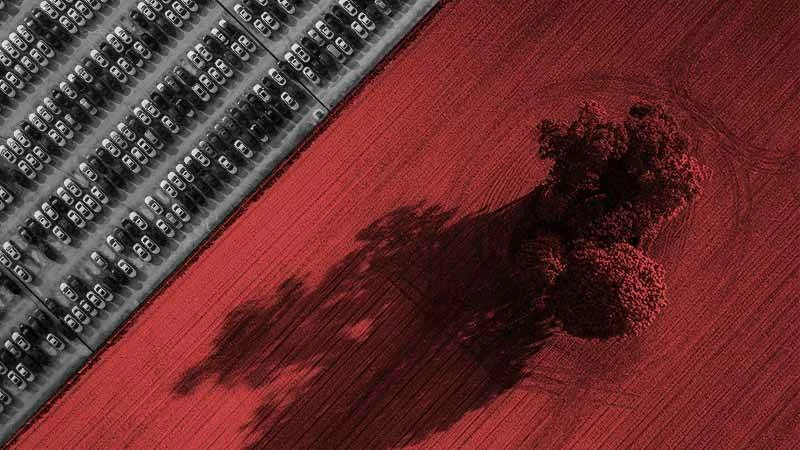
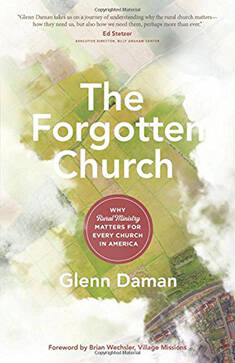
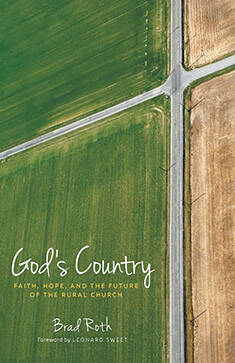
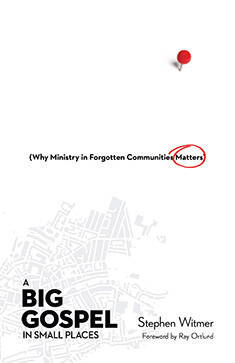
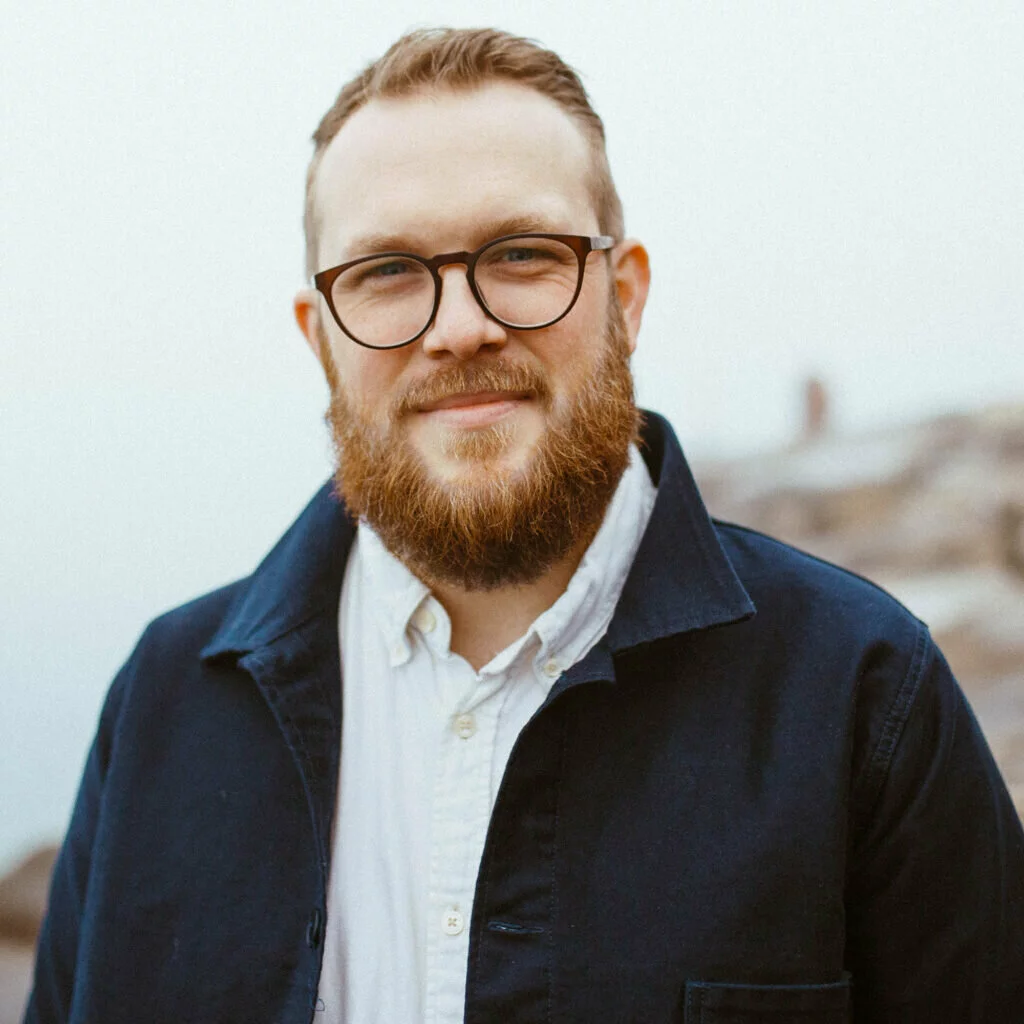


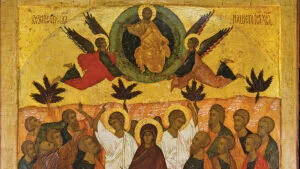
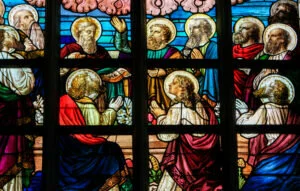


Comments
Be the first one to make a comment!